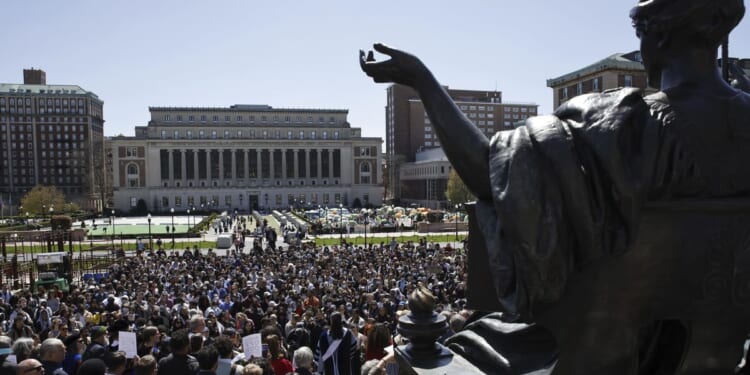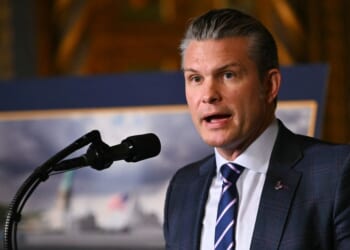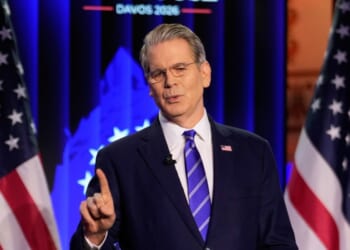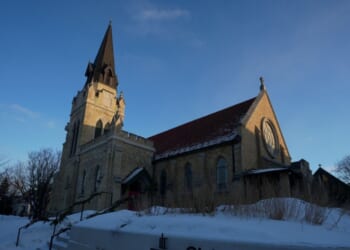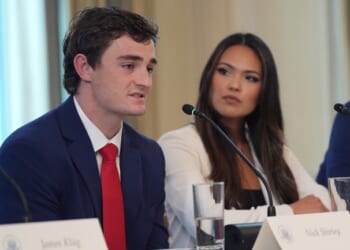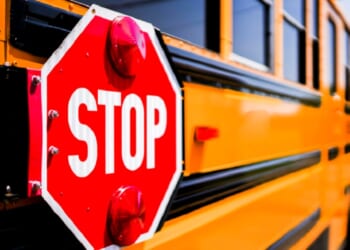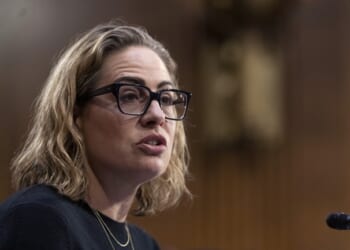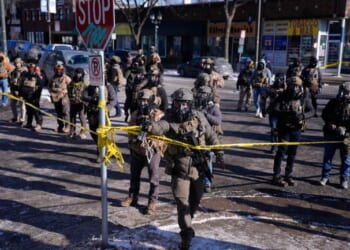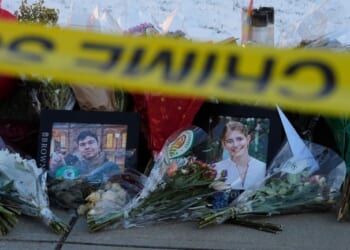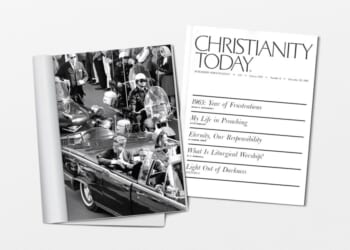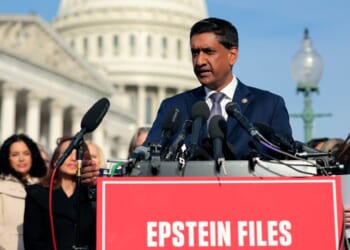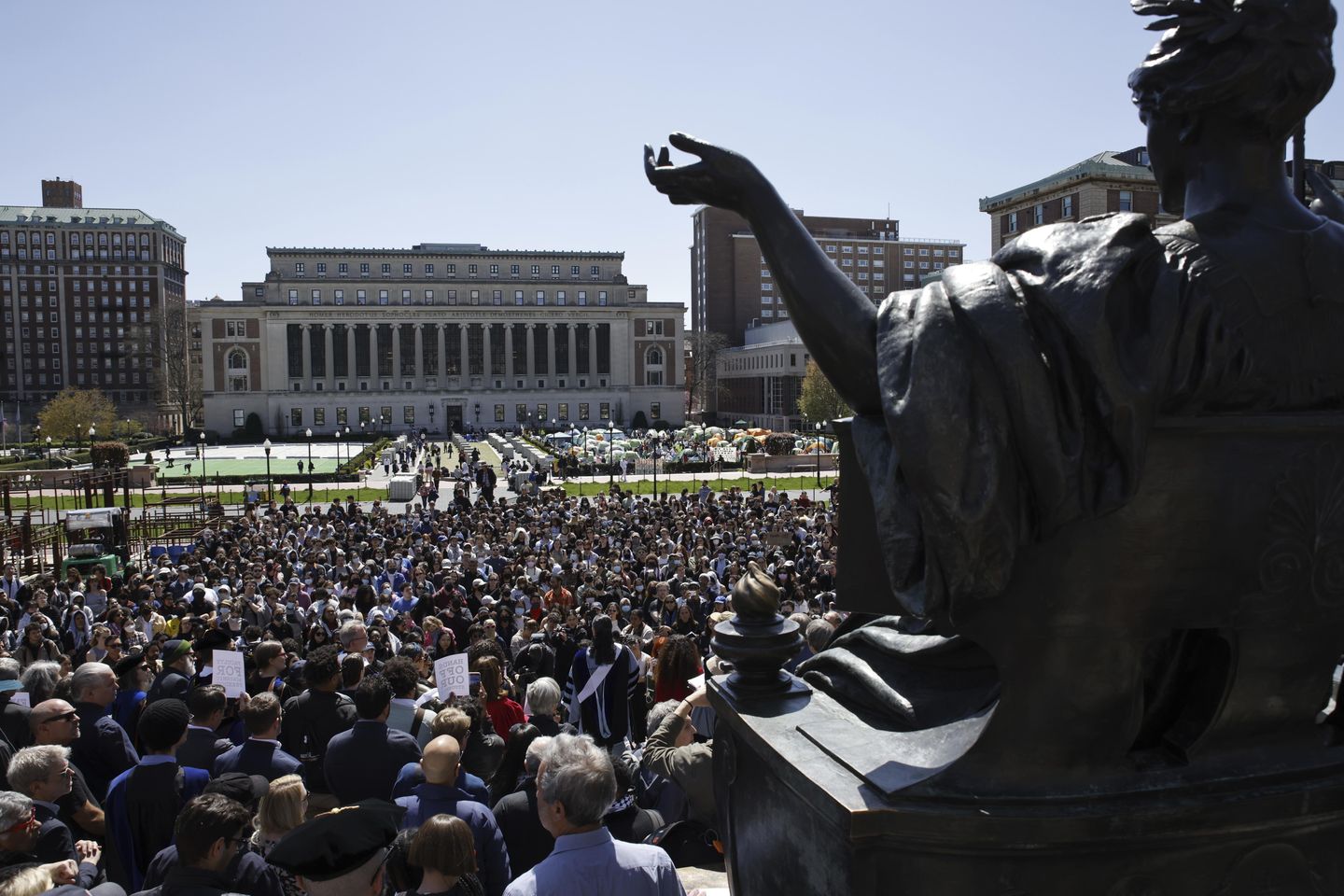
Conservative professors under attack for their views were less likely to receive support from their unions or colleagues than were liberal faculty, according to a survey that found a “noticeable partisan gap” in the treatment of scholars who have faced repercussions for protected speech.
“Sanctioned Scholars,” a report by the Foundation for Individual Rights and Expression, showed that faculty unions were largely unhelpful in free-speech cases, especially when it came to conservatives: Only 7% of conservative scholars said the union had their back as opposed 12% of moderates and 29% of liberals.
The Scholars Under Fire survey released Tuesday found that academics facing sanctions or sanction attempts are frequently on their own, receiving little in the way of public support from the administration, the union or their colleagues.
“Many scholars perceived administrators as absent or adversarial, likely because they were the ones typically enacting the sanctions,” said the report. “Similarly, unions — who are supposed to be stalwart defenders of faculty — were seldom publicly supportive (68% of faculty reported no public support from their union).”
The report also found that “patterns of support varied along ideological lines.”
About 40% of liberal professors said they had public support from their university colleagues versus 19% for conservatives and 18% for moderates. All professors were likelier to receive support privately than publicly.
Where conservatives did enjoy support was from the public at large. A robust 55% of conservative scholars said the “general public” stood by them versus 44% of moderates and 37% of liberals.
“Support for academic freedom should never depend on the views being expressed, but our survey shows that’s exactly what’s happening,” said Sean Stevens, the foundation’s chief research adviser. “If faculty unions and institutions of higher learning won’t stand by scholars in their moments of crisis, they can’t claim to stand for free speech and inquiry.”
The foundation reached out to 635 professors from its Scholars Under Fire database to discover more about their personal experiences after being targeted for their comments between 2020 and 2024.
Of those contacted, 209 completed the survey for a 33% response rate.
The report showed that facing speech-related sanctions was a harrowing experience for virtually all the professors.
“Nearly all (94%) who participated in the survey described the impact of their experience as negative,” said the report. “Roughly two-thirds (65%) experienced emotional distress, and significant chunks reported facing harrowing social setbacks, such as being shunned at work (40%) or losing professional relationships (47%) and friendships (33%).”
About 27% sought psychological counseling, and 20% lost their jobs.
“My biggest disappointment was in the cowardice of other faculty who refused to do anything public on my behalf,” said one professor in the anonymous survey.
Individuals said they received death threats, being afraid to leave their homes, experiencing panic attacks, and fearing for the safety of their children.
One professor reported that “police were doing daily drive-bys because so many people threatened me with violence.”
College campuses in America are becoming increasingly hostile to free speech.
FIRE’s latest Sanctioned Scholars survey reveals the human cost of academic expression.
Harassment. Death threats. Friendships lost. And for one in five, the loss of their jobs. pic.twitter.com/anDG0f5w6U
— FIRE (@TheFIREorg) October 28, 2025
Nathan Honeycutt, the foundation’s manager of polling and analytics, pointed to the irony of critics threatening professors accused of creating an “unsafe” environment with their views.
“Cancellation campaigns are often wrapped in the language of preventing ’emotional harm,’” said Mr. Honeycutt. “But our survey shows that it’s the mobs themselves that inflict lasting mental anguish on academics, many of whom still suffer the consequences long after the controversy subsided.”
Would the professors repeat their comments? Overall, 35% said they were less likely to express similar views, while 35% said they were likelier — but there was again an ideological divide.
Conservatives were likelier than liberals to reiterate the views that got them into trouble in the first place. A plurality, or 44%, said they would probably express similar views, while a plurality of liberal scholars, or 43%, said they would be less likely to do so.
“The effects on future speech are mixed in the aggregate but asymmetric by ideology,” said the report. “In this sample, conservative scholars were most likely to say they would speak similarly again, while liberal scholars were most likely to say they would not. Whether due to differing campus pressures, expectations within peer networks, or selection effects among who stays in academia, the implication is clear: chilling is not evenly distributed.”
While participation in the survey was anonymous, 95 respondents identified themselves as far left, liberal or slightly liberal, while 46 said they were far right, conservative or slightly conservative.

